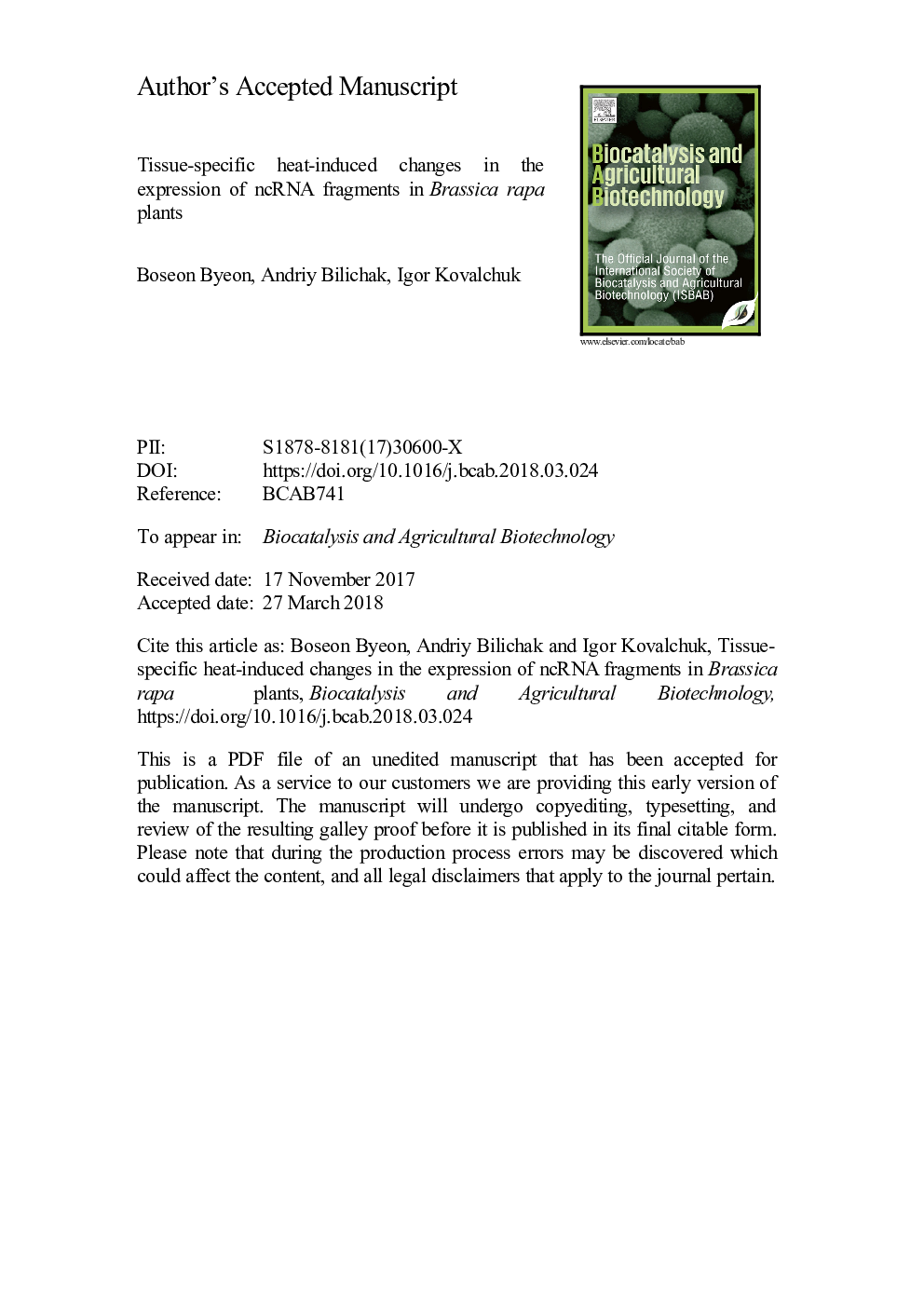| Article ID | Journal | Published Year | Pages | File Type |
|---|---|---|---|---|
| 8405851 | Biocatalysis and Agricultural Biotechnology | 2018 | 48 Pages |
Abstract
Non-coding RNA fragments (ncRFs) represent a large spectrum of short ncRNAs processed from precursor ncRNAs such as tRNA, rRNA, snoRNA and several others. Several recent papers suggest that ncRFs are processed in a specific manner in different tissues or in response to stress. Here, we analyzed alterations in the expression of ncRFs in different Brassica rapa tissues in response to heat stress. Specifically, we analyzed the abundance of tRNA fragments (tRFs), rRNA fragments (rRFs), snoRNA fragments (snoRFs) and snRNA fragments (snRFs). The most significant changes in response to heat stress were observed in tRNAGlu and tRNAAsp. Whereas the number of reads mapping to the former one dropped drastically in all tissues but the apical meristem and pollen, the number of reads mapping to the latter significantly increased. Analysis of tRFs showed that three isoacceptors, tRF5â²Asp(GUC), tRFGly(UCC) and tRFPseudo(UCC) were severely underrepresented in heat-stressed tissues. Heat also induced changes in the processing of ncRFs from precursor molecules; a bias towards the processing of ncRFs from the 3â² end was even more prominent after the heat stress application. The analysis of predicted targets of ncRFs revealed an enrichment in several groups of genes involved in the response to various stresses. To conclude, our work showed that heat stress results in tissue-specific changes in the expression of ncRFs in Brassica rapa and suggested a tissue-specific regulation of various mRNAs and pathways in response to heat.
Related Topics
Life Sciences
Agricultural and Biological Sciences
Agricultural and Biological Sciences (General)
Authors
Boseon Byeon, Andriy Bilichak, Igor Kovalchuk,
